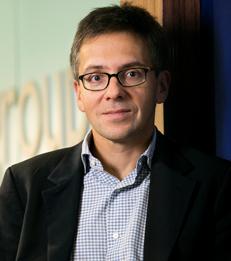Opinion
These 5 Facts Explain the Economic Upsides of an Opened Cuba
—


The telecom infrastructure is so underdeveloped that an hour of regulated Internet connectivity can cost up to 20% of the average Cuban’s monthly salary.
By Ian Bremmer
Taking Cuba off the list of nations that sponsor terrorism is the latest development that will attract foreign companies to the island. So who wants in? These five stats explain which industries present the most opportunities as Cuba opens for business.
1. Money flowing home
One of the immediate benefits of renewed relations with Cuba is the increase in permitted remittance flows. The most recent figures put annual cash remittances to Cuba at approximately $5.1 billion, a level greater than the four fastest growing sectors of the Cuban economy combined. Now, permitted remittance levels from the U.S. will be raised fourfold, from $2,000 to $8,000 per year. This will help drive an increase in spending power in Cuba, which is expected to grow at a compound annual rate of 4.6% through this decade. For global companies seeking a foothold anywhere they can, more money in the pockets of Cubans means more fuel for expansion. Take Coca-Cola. With an open Cuba, Coke could be legally be sold in every country in the world save one: North Korea.
2. A lot more visitors
Just 110 miles off the coast of Florida, Cuba should be a natural magnet for American travelers. Despite needing to meet special criteria to receive a visa from the State Department—allowable categories include educational and journalistic activities—170,000 Americans visited the country last year. As the restrictions slacken, the sky is literally the limit. JetBlue already charters flights to Cuba from the U.S., but the budget airline wants to start running regular commercial flights. American Airlines Group now flies to Cuba 20 times per week, a 33% increase in flights compared to just a year ago. More flights—and more competition—will make airfare more affordable, driving additional tourist traffic.
Read full article as published in TIME
___
Ian Bremmer is a Global Research Professor.
1. Money flowing home
One of the immediate benefits of renewed relations with Cuba is the increase in permitted remittance flows. The most recent figures put annual cash remittances to Cuba at approximately $5.1 billion, a level greater than the four fastest growing sectors of the Cuban economy combined. Now, permitted remittance levels from the U.S. will be raised fourfold, from $2,000 to $8,000 per year. This will help drive an increase in spending power in Cuba, which is expected to grow at a compound annual rate of 4.6% through this decade. For global companies seeking a foothold anywhere they can, more money in the pockets of Cubans means more fuel for expansion. Take Coca-Cola. With an open Cuba, Coke could be legally be sold in every country in the world save one: North Korea.
2. A lot more visitors
Just 110 miles off the coast of Florida, Cuba should be a natural magnet for American travelers. Despite needing to meet special criteria to receive a visa from the State Department—allowable categories include educational and journalistic activities—170,000 Americans visited the country last year. As the restrictions slacken, the sky is literally the limit. JetBlue already charters flights to Cuba from the U.S., but the budget airline wants to start running regular commercial flights. American Airlines Group now flies to Cuba 20 times per week, a 33% increase in flights compared to just a year ago. More flights—and more competition—will make airfare more affordable, driving additional tourist traffic.
Read full article as published in TIME
___
Ian Bremmer is a Global Research Professor.
